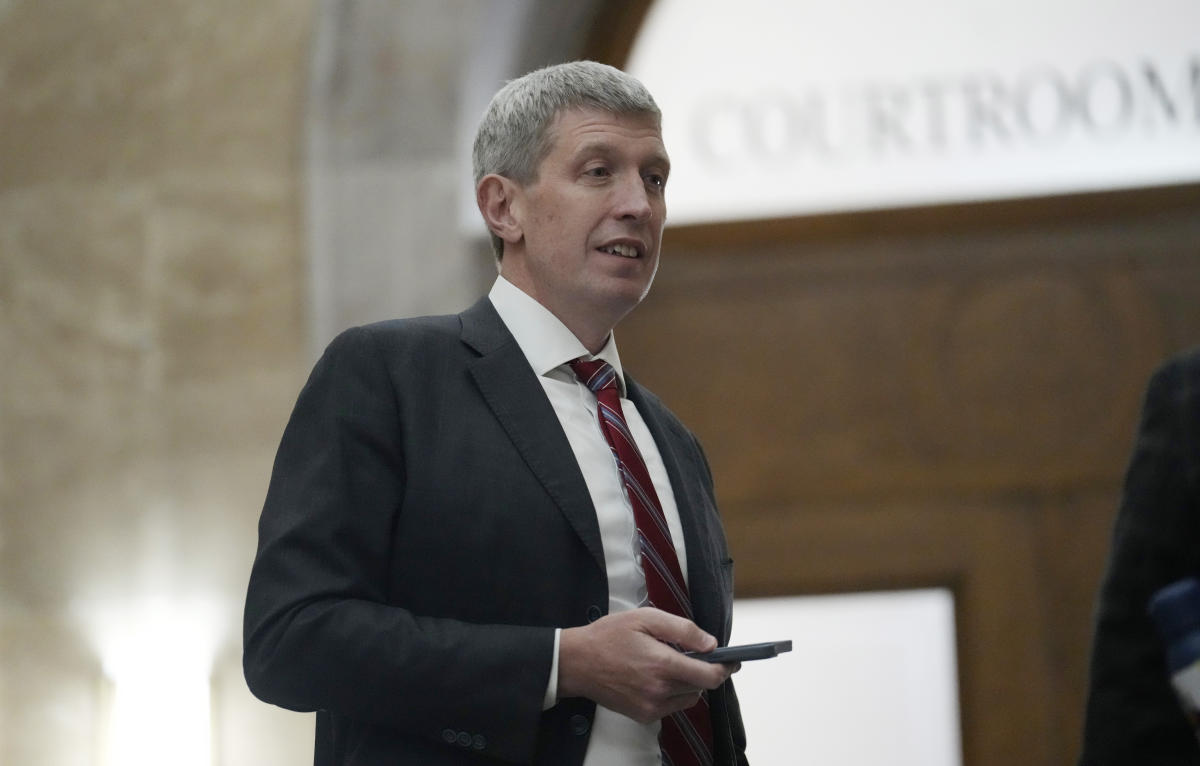DENVER (AP) — New Phase of Campaign to Bar Donald Trump from Running Again Begins as Lawsuits Reach Supreme Court
The campaign to prevent former President Donald Trump from running for the White House again is entering a crucial stage this week, with hearings starting in two states on lawsuits that could ultimately reach the U.S. Supreme Court. One case will hold a weeklong hearing in Colorado, beginning on Monday, while on Thursday, oral arguments will be presented to the Minnesota Supreme Court in an attempt to remove Trump from the ballot in that state. Regardless of whether the judges decide to keep Trump on the ballot or disqualify him, the rulings are likely to be swiftly appealed and eventually brought before the U.S. Supreme Court. It is important to note that the nation’s highest court has never ruled on Section Three of the 14th Amendment, which prohibits those who have sworn an oath to uphold the Constitution and then engage in insurrection from holding higher office.
“We’ve seen hearings on the eligibility of presidential candidates before, such as Barack Obama, Ted Cruz, and John McCain,” said Derek T. Muller, a law professor at Notre Dame. However, Muller emphasizes that these cases are different, as they rely on an obscure clause of the Constitution with a controversial disqualification based on insurrection. He also acknowledges that although they may be longshots, these cases have a plausible legal path to success and raise essential questions that need to be addressed.
Of the numerous cases filed in recent months, the lawsuits in Colorado and Minnesota are considered the most significant by legal experts. These cases were filed by two liberal groups with substantial legal resources, and they chose states with clear and expedited processes for challenges to candidates’ ballot qualifications. As a result, these cases are taking a more legally sound route to push courts to disqualify Trump as a candidate, as opposed to other lawsuits seeking a broad ruling from federal judges to declare Trump ineligible for the presidency.
The plaintiffs argue that the issue is straightforward: Trump’s actions to overturn the 2020 election, culminating in the January 6, 2021 attack on the U.S. Capitol, disqualify him from holding the presidency. They claim that these actions are as disqualifying as if he were not a natural-born citizen, which is another constitutional requirement for the office. The Colorado lawsuit, filed by the liberal group Citizens for Responsibility and Ethics in Washington on behalf of Republican and unaffiliated voters, alleges that “Four years after taking an oath to ‘preserve, protect and defend’ the Constitution as President of the United States… Trump tried to overthrow the results of the 2020 election, leading to a violent insurrection at the United States Capitol to stop the lawful transfer of power to his successor.”
Trump has labeled these lawsuits as “election interference,” and his lawyers argue that the issues at hand are anything but simple, particularly in relation to a provision of the Constitution that hasn’t been utilized in 150 years. His legal team asserts that the clause was never intended to apply to the presidency since it is not mentioned in the text, unlike other positions such as Senator, Representative in Congress, and elector of President and Vice President. Furthermore, Trump’s lawyers argue that the former president never engaged in insurrection and was merely exercising his right to free speech by expressing concerns about what he perceived as illegitimate election results.
The hearings in Colorado may include testimonies from witnesses of the January 6 attack or other pivotal events during Trump’s attempts to overturn the election. The identities of these witnesses have been protected until their appearance, as part of the court’s efforts to mitigate heated rhetoric and threats that have arisen in Trump’s ongoing criminal trials. The lawyers involved are expected to delve deep into the historical context and drafting of Section Three of the 14th Amendment, analyzing its usage between its adoption in 1868 and the amnesty law enacted in 1872. There is limited legal precedent on this issue, and the attorneys have had to debate the meaning of a single 1869 case written by Salmon Chase, who was the chief justice of the U.S. Supreme Court at the time, but was writing as an appeals judge.
While dozens of cases citing Section Three of the 14th Amendment have been filed, the cases in Colorado and Minnesota carry heightened significance due to their association with well-funded liberal groups and the targeted states’ streamlined process for challenges to candidates’ ballot qualifications. Notwithstanding the long odds, these cases bring up crucial legal questions that need to be addressed.


